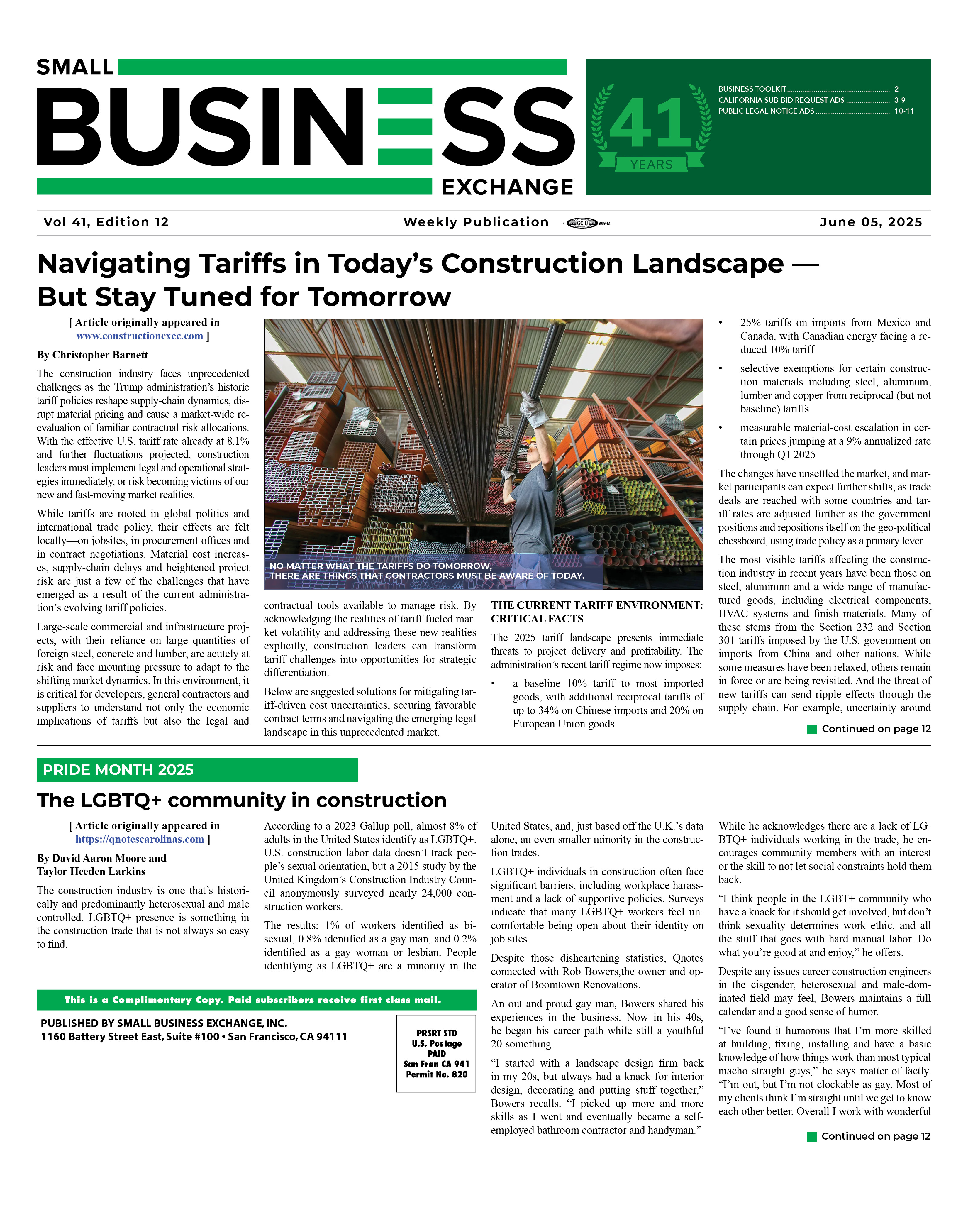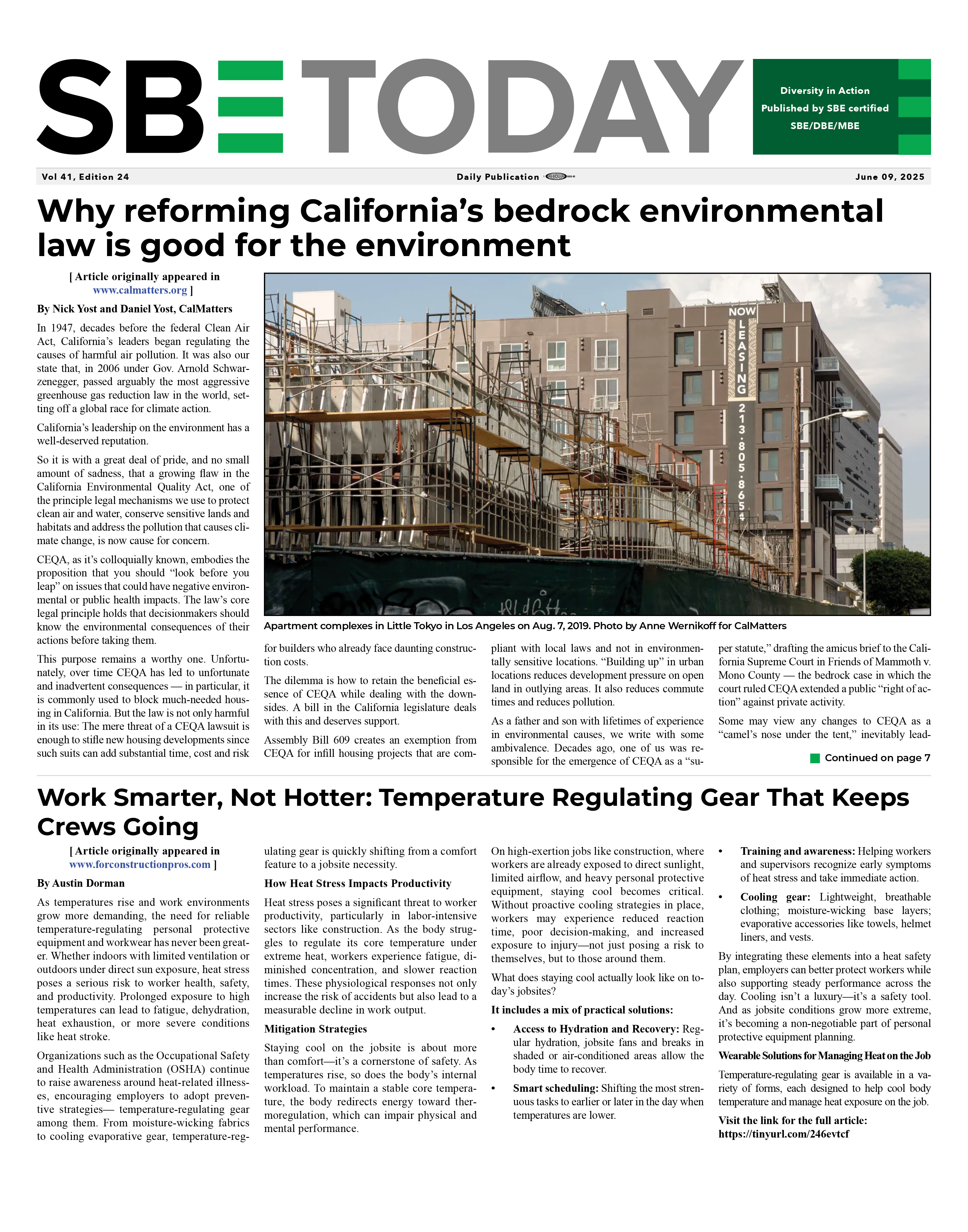|
|
Mayor Lurie Presents Balanced, Responsible Budget to Advance San Francisco's Recovery
06/04/2025
[ Article originally appeared in https://www.sf.gov ]
Proposed Budget Prioritizes Core Services With Investments in Public Safety, Clean Streets, Behavioral Health Crisis Response, Economic Revitalization; Closes $800 Million Deficit With Structural Changes to Position City for Long-Term Growth SAN FRANCISCO – Mayor Daniel Lurie presented his $15.9 billion proposed budget for Fiscal Years (FY) 2025-2026 and 2026-2027, advancing San Francisco’s recovery by prioritizing core services and investing in safe, clean streets, while closing an historic $800 million deficit. With major structural changes and dedicated funding set aside given uncertainty at the state and federal levels, the proposed budget boldly and responsibly realigns the city’s spending in line with revenue and sets up the city for long-term growth. Mayor Lurie’s first budget builds on the work his administration has done since taking office on January 8 to make the city safer, cleaner, and more prosperous. Under his leadership, overall crime is down nearly 30%, car break-ins are at a 22-year low, and street encampments are at their lowest number since 2019. Mayor Lurie established the San Francisco Police Department (SFPD) Hospitality Zone Task Force to improve public safety downtown 365 days a year, following that with his Rebuilding the Ranks plan to fully staff the SFPD and Sheriff’s Office. After working with the Board of Supervisors to overwhelmingly pass his Fentanyl State of Emergency Ordinance and unlock resources to tackle the homelessness and behavioral health crisis with urgency, Mayor Lurie unveiled his Breaking the Cycle plan to transform the city’s response to that crisis. Delivering on that plan, he introduced an integrated neighborhood-based model for the city’s street outreach teams and, earlier this month, launched the Breaking the Cycle Fund with $37.5 million in private funding to support this work. This proposed budget also builds on progress already made on the city’s economic recovery. Mayor Lurie’s PermitSF initiative is making the city’s permitting process faster, more predictable, and more transparent, complementing the work he has done to create new entertainment zones and foster a 24/7 neighborhood downtown. ADVANCING SAN FRANCISCO’S RECOVERY Prioritizing Public Safety Even facing a significant deficit, Mayor Lurie has been clear that his budget would prioritize core services, beginning with public safety. The proposed budget avoids any cuts to sworn officers while investing in the police officers, firefighters, sheriff’s deputies, 911 dispatchers, and other first responders who keep San Franciscans safe and play a critical role in the city’s comeback. Mayor Lurie’s budget:
Delivering Clean and Safe Streets Following the launch of the Breaking the Cycle Fund with $37.5 million to support the vision of Mayor Lurie’s Breaking the Cycle plan, this proposed budget makes significant investments in tackling the behavioral health and homelessness crisis while preserving critical funds for street cleaning. Mayor Lurie’s budget:
Driving Economic Recovery On top of creating the conditions for the city’s comeback, Mayor Lurie’s proposed budget builds on his work to grow San Francisco’s economy with key steps to support small businesses and cultural institutions, encourage tourism, and support families. Mayor Lurie’s budget:
POSITIONING FOR THE FUTURE For years, city spending has outpaced revenues, leading to the historic structural deficit the Lurie administration inherited. To prepare the city for long-term success, Mayor Lurie has made necessary structural changes in this proposed budget to ensure the expenditures align with revenues. The proposed budget takes bold steps towards ending the practice of spending one-time funds on ongoing expenses, which significantly contributed to the structural deficit. In addition to balancing the two-year budget, the proposed budget takes significant steps to manage significant outyear gaps that threaten to undermine the city’s long-term fiscal health. Mayor Lurie’s budget:
Below are Mayor Lurie’s full remarks as prepared for delivery: Good morning. The people of this city have called on us to rebuild a safer, cleaner, thriving San Francisco. To do that, we must provide clean and safe streets, address the crisis of homelessness and addiction, and reinvigorate the spirit and strength of businesses and neighborhoods across this city. As we lay the foundation for our long-term growth, we must boldly and responsibly realign San Francisco’s spending with its revenue. We must build a new culture of accountability for every hard-earned tax dollar we invest. Here’s the bottom line: we have to stop spending more than we can afford. The era of soaring city budgets and deteriorating street conditions is over. The budget I’m introducing today faces the $800 million dollar deficit head-on. A crisis of this magnitude means we cannot avoid painful decisions, and I am prepared to make those decisions. We are doubling down on the core services that drive our economy, showcase the beauty and diversity of our neighborhoods, and enhance the quality of life for all San Franciscans. When I say core services I am talking about police, firefighters, emergency personnel, nurses, street cleaners, Muni operators, and more—all the things that keep people safe and support our long-term economic growth. This $15.9 billion budget represents a collaborative effort to close the $800 million-dollar two-year deficit and address future projected shortfalls. In this time of unprecedented uncertainty at the state and federal level, this budget also sets aside $400 million dollars for challenges that lie ahead. Nowhere is the spirit of San Francisco more alive than in the commitment of the thousands of city employees and service providers who keep our city up and running and take care of our most vulnerable. They wake up looking to make San Francisco a better place. I see it every single day. Unfortunately, in a crisis like this, there are no easy fixes. We are facing some incredibly difficult decisions that will impact our workforce and nonprofit partners. We have worked hard to limit those impacts and are grateful for the contributions and sacrifice of these dedicated public servants as we work to reclaim our place as the greatest city in the world. Public safety has always been and will remain my number one priority. We’ve been working hard—crime is down roughly 30%— but when it comes to the safety of San Franciscans, we take nothing for granted. Alongside our Rebuilding the Ranks plan, we are investing in police officers, sheriff’s deputies, 911 dispatchers, and first responders who keep us safe. And in keeping with longstanding San Francisco values, we will continue to invest in legal services to protect our immigrant and LGBTQ+ communities. The number one thing I hear from people is that they are starting to see and feel the difference on our streets. But our work is far from over. With the lowest number of encampments since 2019, we have made tremendous progress and will continue to assist those on the streets while preserving critical funds for street cleaning and San Francisco Public Works. Thanks to a new $3 million public-private partnership, we will also begin expanded cleaning and maintenance along commercial corridors across seven neighborhoods. Building on the momentum of our Breaking the Cycle Fund, launched with $37.5 million dollars in private seed funding, we will continue to tackle the behavioral health and homelessness crisis by expanding interim housing to provide the treatment and care required for those suffering on our streets. It’s not enough to just build more shelter beds. Fentanyl has changed the game, and we need to change with it. In continued partnership with the Board of Supervisors, I will seek approval to unlock the critical funds we need to build the types of interim housing and treatment that we need right now to get families and young people off the street and on the path to stability. By taking a rigorous data-driven approach, and expanding proven strategies like rapid-rehousing, we will make real progress on street conditions. Finally, this budget breaks with the unsustainable practice of using one-time funds to cover ongoing costs. In past budgets, the city used emergency federal relief funds as a short-term Band-Aid that failed to stop the bleeding. As we get our fiscal house in order, we are revisiting contracts across city government and bringing grants back in line with pre-pandemic levels. Going forward, funds will be allocated with the expectation of increased accountability and measurable results. These are the steps we must take to responsibly manage our budget, not just this year but for years to come. It is time to invest in the future of San Francisco. To create the conditions for our success, we will continue to help businesses grow with common sense reform, bolster the innovation this region is known for, welcome back tourists, and look to the arts as a powerful driver of community, connection, and joy. The road to recovery is long, but data shows that for the first time in five years, people feel San Francisco is headed in the right direction. This city voted for accountable leadership, service, and change—we are going to deliver. I want to thank you all for making the choice to call San Francisco home—to work here, to raise your children here, to grow your businesses here. I want to extend my deep appreciation to our city employees and nonprofit partners for all you have done and continue to do. And I’d like to acknowledge the Board of Supervisors, with special thanks to Budget Chair Supervisor Connie Chan, and Board President Supervisor Rafael Mandelman for their partnership over the past few months to get us to this point. I look forward to working with you all in the coming weeks to tackle these deficits and ensure we make the right investments in our future. Together, we will make sure that San Francisco’s comeback isn’t just a moment, it is the foundation of a new level of prosperity that will benefit generations of San Franciscans to come.
Thank you. Back To News |
|





